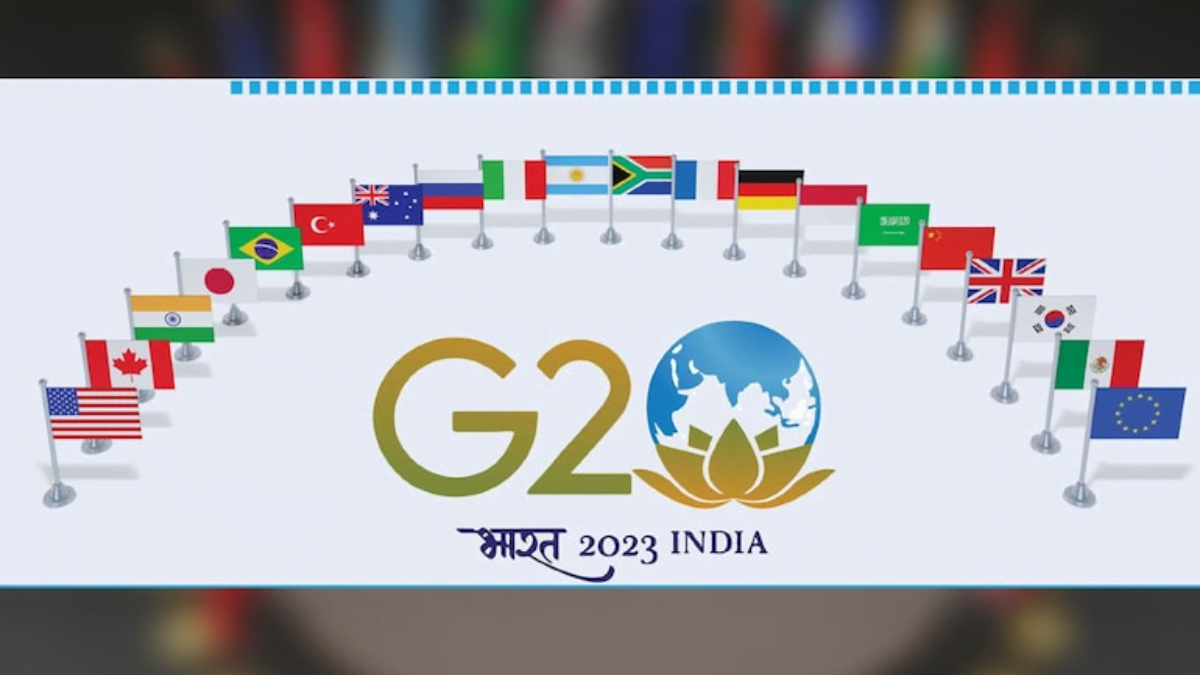On the morning of 10th September, when world leaders gathered to pay tributes to Mahatma Gandhi at Rajghat, Indian news anchors who are day and night mired in producing a circus of bigotry and hatred. cheered in joy over the message of non-violence and religious harmony reaching to the world. These “news debates” often center around divisive issues to create communal tensions, target minorities, and are far from promoting harmony. The ruling dispensation, too, has its hands dirty in the mud of periodic incentives and punitive income tax “raids,” albeit mostly behind the curtains.
The G20 summit in New Delhi
New Delhi hosted the world leaders for the annual summit of the G20, earlier this month. The G20 is the platform of world’s most powerful economies. All eyes were on key issues of ‘development including climate financing, food security, and multilateral development bank reforms – tripling sustainable lending to benefit poorer, developing countries‘ as written by Manjari C. Miller for Council on Foreign Relations.
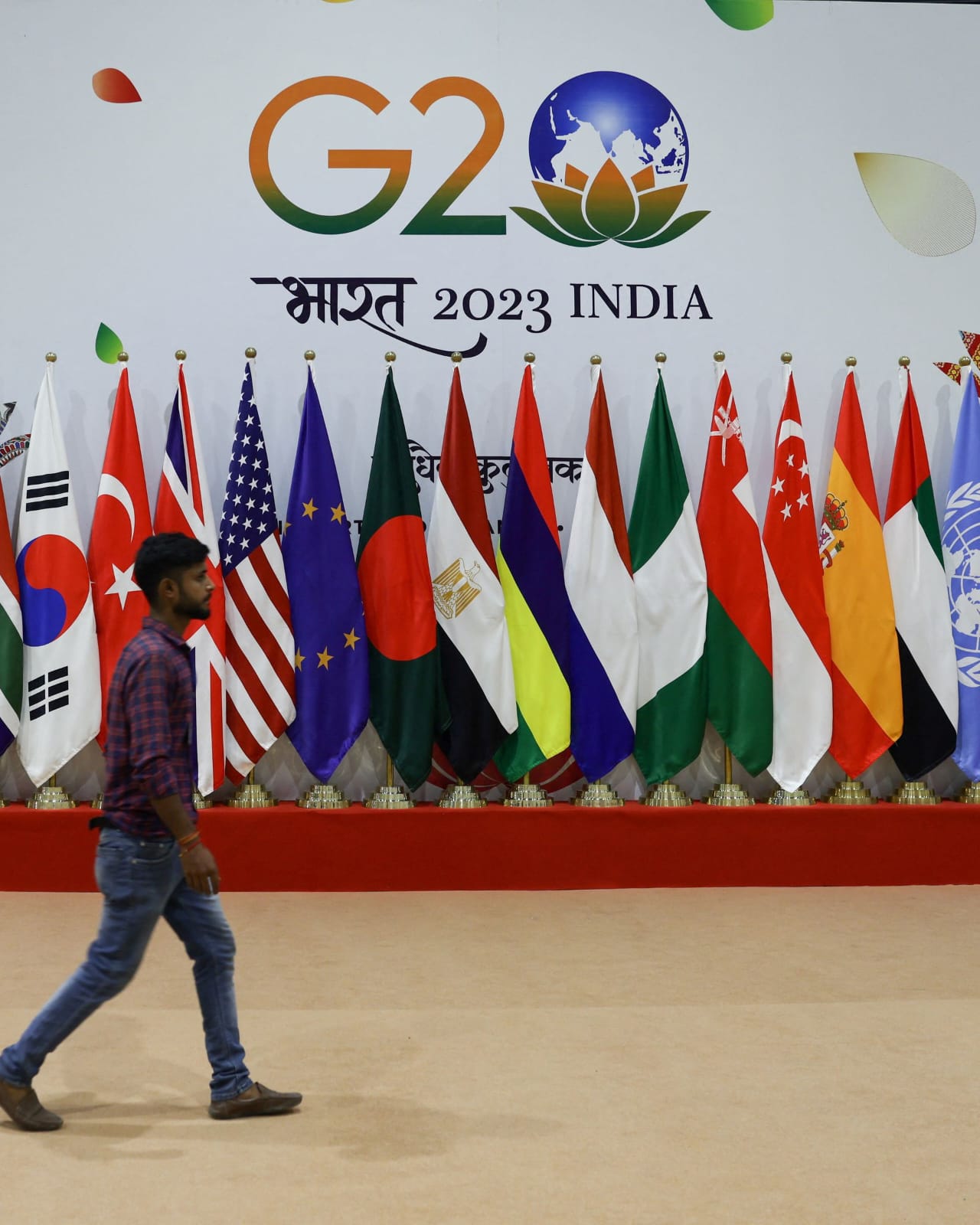
The stakes were high keeping in mind the economic slowdown of the post-pandemic world, a growing climate crisis amid concerns of lack of concerted efforts and sluggish progress to tackle the impending disaster. According to Michael Kugelman, director of the South Asia Institute at the Wilson Center in Washington DC, ‘The Delhi Declaration still falls short on climate. It features extensive pledges to fight climate change, but most don’t offer specific targets or time frames. Additionally, the document doesn’t set specific mitigation goals and targets for G20 countries themselves.‘
However, for the host country, it was an occasion to project its image as a world power. Meant to be a forum little known outside diplomatic circles, the summit created much buzz in domestic and international media and, not surprisingly, all attention was on Prime Minister Modi. The diplomatic event was turned into a mega ceremony.
Posters of Modi were plastered all over the capital, a move which was perhaps more directed at the home audience than the visiting guests.
Posters of Modi were plastered all over the capital, a move which was perhaps more directed at the home audience than the visiting guests. ‘Ahead of the 2024 national elections,‘ this high on publicity positioning, though low in substance, was explained researchers at the Council on Foreign Relations as something that ‘can help Modi further his claim to be the only person capable of bringing India’s major-power status to fruition.‘ This narrative clearly indicates the government’s intention of using the mega event for the Poll campaign next year.
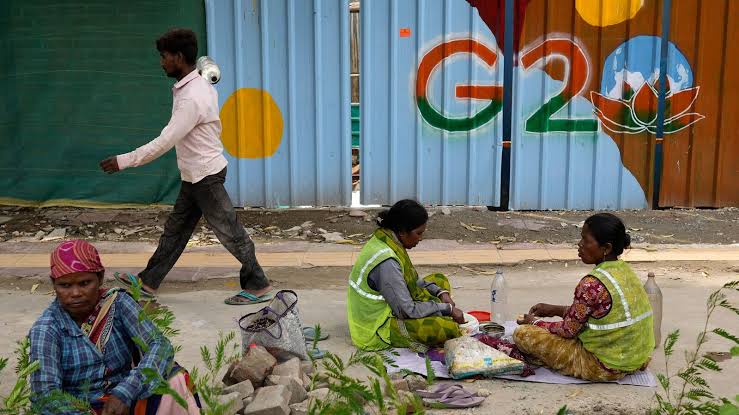
Critics argue that the country’s posture at the summit was merely symbolic, as the state of democracy in the country is facing some serious questions. Nevertheless, the party in power does seem to benefit from the situation and the country’s democratic backsliding is unlikely to see any reversal in the near future.
In the Capital under ‘not a lockdown’ for three days, media reports showed that daily wage earners and slum-dwellers were put under severe constraints with police not allowing them to go for work. For example, a painter Mohammad Nasiruddin could not go to work during the three days and small businesses were at halt, reported Zafar Aafaq for Scroll. Demolitions were carried out in the run-up to the summit, activists claim.
In an embarrassing and yet futile attempt to hide the country’s poverty, authorities put out veiled screens to cover slums and poor localities.
In an embarrassing and yet futile attempt to hide the country’s poverty, authorities put out veiled screens to cover slums and poor localities. ‘The government does not want to show them that there are slums in Delhi.‘ commented Mahesh, a shopkeeper in South Delhi’s Coolie Camp to news platform Scroll. Such beautification efforts appear to make the poor invisible in an uncanny parallel with Shrilal Shukla’s satirical epic Raag Darbari.
The illusive G20 campaign
While the bombarding ad campaign may seem appealing at first, the hype around G20 reveals an illusionary mirage upon closer look. The façade that India under Modi is a home of inclusion and harmony, a flagbearer of world peace, and even a path teller for the world is a beautiful work of fiction. The domestic picture tells a completely different story.
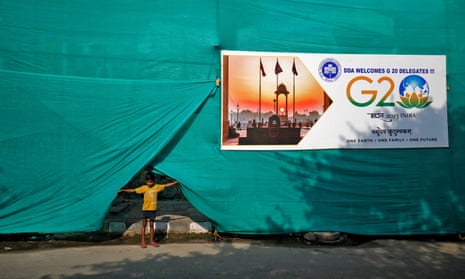
With his message that ‘Our ability to reach unity in diversity will be the beauty and the test of our civilisation‘ is in tatters at home, the symbolism of Gandhi is a tool to cash the icon of peace globally inspite of the mob lynching, pogroms and hate campaigns against Muslims in India.
The Indian state actively shelters the bands of vigilantes, targeting those not falling in line, throwing cases against anyone who dares to speak and now it has figured out a tool of bulldozing properties with quite a fanfare. Phony phrases such as ‘One Earth, One Family, One Future’ serve well in a world engulfed in its own crises.
G20: India’s moment of glory in geopolitics
The summit was dubbed as a success for India in geopolitical terms, hailed in worldwide media as India’s moment as a big player. The world seemed to have neglected ‘how Modi shrewdly marketed India’s presidency to burnish his personal image and elevate his party.‘ The underlying message being the rise of India was somehow only possible because of a strong leader like him. The Indian leader did not shy away in portraying it as his personal success.
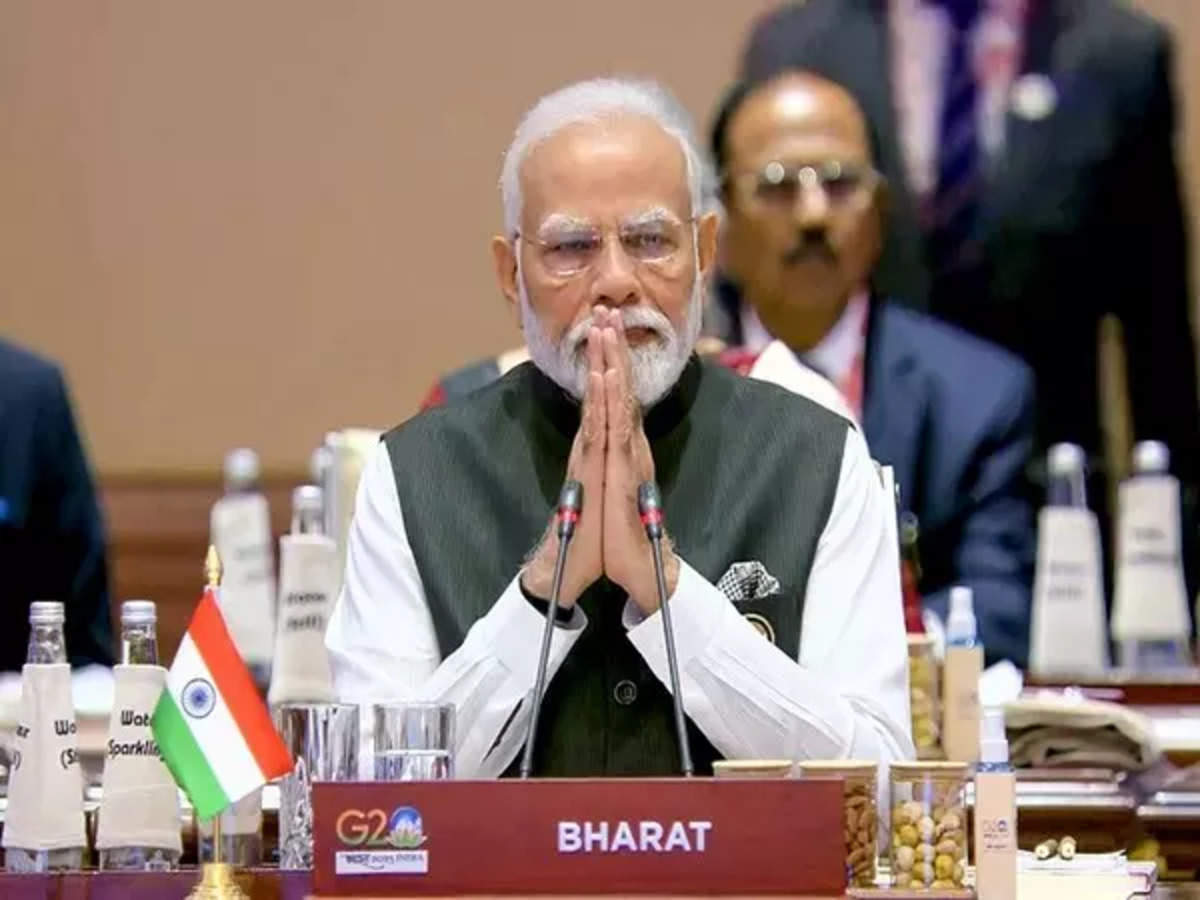
This eagerness to cash in for electoral purposes can be perfectly understood. Faced with a growing list of challenges from inflation to youth unemployment, Modi’s electoral fate hangs even more so on his rhetoric of being a strong leader.
Faced with a growing list of challenges from inflation to youth unemployment, Modi’s electoral fate hangs even more so on his rhetoric of being a strong leader.
The Chinese President’s absence gave India the chance to occupy centre stage and showcase itself as the champion of the Global South’s cause. However, the “issues” discussed were not any concrete measures on curbing fossil fuels or the vicious corporate exploitation of natural resources and polluting the soil and water, but big “developmental” projects and economic corridors. Such mega projects neglect many environmental concerns and tend to be carried out at the expense of marginal communities that are too often the first to bear the burdens and consequences of such projects while reaping the least of their benefits.
Capitalist development: A promised land without future
The capitalist way of development and exponential growth has proven to be catastrophic for our planet. It has not only failed in its fundamental dream of the overall upliftment of the society through wealth trickling down to lower strata, but the promise of equitable growth has been an utter failure. Capitalist development has generated enormous inequality and pollution with deadly consequences for the ocean, environment, and Earth with a climate disaster looming large over us.
Capitalist consumerism and endless consumption accumulate heaps of profits in the pockets of multinational companies. These companies are frequently exposed for their malpractices in poorer countries, where they exploit indigenous people and land, extract natural resources and forests, often with contempt for international standards. For example, an Indonesian Island sought legal action for climate damages against cement producer Holcim in 2022.

The intersectional feminist way of sustainable development
An economic model based only on capitalist consumption and statistics is doomed to reproduce the predicament of unsustainable growth and a chain of economic crises. Development cannot only be seen in terms of numbers, charts, and figures; it must be people-centric. The current model of ‘extractive’ development is not viable, given the impending climate disaster.
Small projects based in rural localities can, on the other hand, entertain the requirements, customs, and needs of the local population. Sustainable practices include recycling, reusing while maintaining the natural cycle of water sources and allowing soil to replenish nutrients and forests to regrow—in other words regeneration without excessive extraction. Such a development scheme should also aim at addressing the problems of inequality and alienation of marginalised peoples.
Our economic models must adapt and should become locally oriented, and their emphasis should be the equitable distribution of wealth, ensuring fair wages to those standing at lowest in economic structure.
Our economic models must adapt and should become locally oriented, and their emphasis should be the equitable distribution of wealth, ensuring fair wages to those standing at lowest in economic structure. With its short sightedness, the current model sees mega projects as a quick way to growth but they are not only unsustainable but an open invitation to natural disasters. The Modi Government has proven during its ostentatious displays during its G20 presidency that it has no interest in equitable economic growth, people-oriented development, or environmental protection, but is more interested in protecting its own political future.
